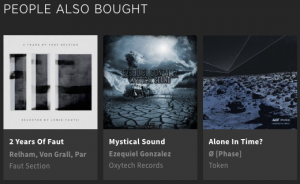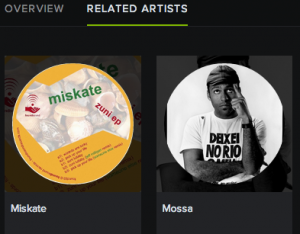Starting a label for the right reasons (Part 2)
Our last post was about deciding on the right reasons to start a label, and before you go on reading this post on starting a label yourself, I’d invite you to go back and read the first part of this series. If Part 1 was a bit of a reality check for you, or perhaps was a bit of a disappointment, Part 2 will be more positive and help you get in touch with your entrepreneur-self.
So, let’s get things straightened up and go over the “I want a label” checklist.
The name of the game is networking
If there is one thing that is essential to run a label, it’s to know the right people and to make good connections; this alone will make a tremendous difference. Believe it or not, I know a few people who have previously decided out of the blue to start a label because they had access to all the resources online to do it, but no network; no surprise then that the outcome of a these endeavors were very few sales.
But how does one network?
I’ve discussed this previously in past posts; I believe it starts on Soundcloud, where it’s important to connect with people who have similar tastes…these people will be supporters of your projects if you connect with them. People will be interested if they see some action on your music and profile. If you don’t mention, like, or reshare anything you’re going to be caught in a downward spiral.
Other ways to network include:
- Connect with local DJs, clubs.
- Follow labels you love and release music like you want to release. Connect with the artists.
- Leave comments on podcast and music you like.
- Go out, try to attend festivals and be social. Making physical contacts is incredibly empowering and important.
- Tip: Investing 1-2h per day in networking will bring huge benefits down the road.
Be present
A long time ago, I read an article stating that humans get curious or engaged after a series of 3 notifications prompting them to buy a product. In other words, you need 3 ads or 3 different sources to get people’s attention or a sale. This article was current, but I still believe there’s some truth to that. This means that for your music, you want to get people’s attention multiple times so they get interested enough to listen to you. However, people are constantly submerged with solicitation so a no-solicitation approach might even be better. This means you want people to talk about your music but you don’t want your approach to be “Hear me! Buy this!”, but instead a “This is a great track!” kind of comment. People are way more likely to be curious if there’s no “call to action” to do something. This means that you need to be present, and have a web of contacts to share the news for you; this will only happen if your network is solid.
Have solid contributors
You can’t expect to have a solid label if you can’t consistently release great music. To do that, you need some solid artists and releases. You need a balance of new artists mixed with known artists, either through remixes or full releases. But to get artists on board, you need to create a safe ground and attractive platform to have people wanting to jump in.
But once you have artists on board, you need to keep them. Having ways to keep them stimulated such as with label nights in a club, a podcast series, or pushing their music to get reviews, promoted, etc. – these things are very exciting for anyone.
TIP: A new label will have a hard time getting a PR agent to do publishing and advertising but this is something you can slowly do yourself. Perhaps we can discuss that in a future article.
Think of your branding
Branding is also exciting for an artist, but also for fans. People love finding a community that makes music that speaks to them. That’s probably the most difficult part of starting a label because a branding will stick with you until the label’s over. You need to be sure of what image, values, sound, aesthetic you want to project. You’ll attract people in as a consequence.
TIP: You can totally find someone on Fiverr for a logo.
Be innovative
Innovation is about watching what trends are happening in the music world, and trying to fulfill the needs of people who support what you do. If people prefer to buy music on a certain store, try to focus your promo there. Nowadays, the main trend is to go through Bandcamp for selling and promoting the music. But you might want to work with an aggregator to have your music be on 100+ online stores plus streaming sites. There are many aggregators out there you can work with. They all do the same things, but have different fees so you might want to shop around.
TIP: Start small, grow as you go.
Be ready to invest
Running a label has nothing to do with making money out of it, seriously. Trust me, you pay to have a label and sometimes, there are moments where you get some money back in the process.
If labels don’t really make money, why start one?
Starting a label opens doors. It will become your platform of expression, a hub to connect and attract people who share the same tastes as you and who can grow together into a place where you can all spread the music you believe in. Running a label is not about doing anything yourself. I’ve started enjoying running my own when I started delegating tasks to people who wanted to participate in helping doing something they liked doing. To surround yourself properly takes time but is also fun.
To finish up, starting a label also requires some technical items. You’ll need to cover these if you want your label to be selling.
- ISRC codes. These are necessary for selling and are a way to create a single number for each song.
- Have a website, a Soundcloud account, a Facebook fan page, and a Paypal account for payments.
- Create a Bandcamp account.
- Get an online shop aggregator.
- Have someone do artwork if you’re not good at it. You can find someone on Fiverr and use Canva for little needs.





